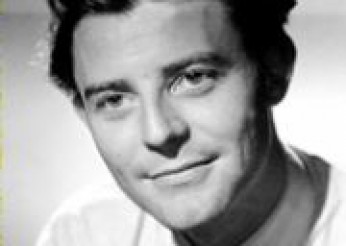Such as with all other subversive film authors, the case of Spanish engaged filmmakers Luis Garcia Berlanga and Juan Antioni Bardem has proven that the best films are made in toughest life and political conditions
Berlanga and Bardem’s artistic paths have often parted, but they have sometimes also crossed each other when the conditions were the worst. The two directors were not only close associates but also great friends. The first film they made together was Esa pareja feliz about a married couple from Madrid who for one day become the mascots of a soap factory, getting free meals and gifts. This film from 1951 seems as if it was made today, in the era of aggressive corporate marketing. Due to such similar themes in their films, the directors were often censored by Franco’s regime and found themselves in quite bizarre situations worthy of even the great film director Bunuel. For example Berlanga’s farce Los jueves, milagro that ridiculed the church’s production of miracles for commercial success enraged the Catholic clergy to such extent that the production company, which was closely connected to the same clergy, forced the director to rewrite the screenplay together with a priest. Berlanga’s most famous and best film Bienvenido Mister Marshall!, in which he criticized Hollywood, McCarthyism, the Catholic church and Franco’s regime and which was shown within the official program in Cannes, enraged so much the president of the jury in Cannes Edward G. Robinson that he called it “anti-American”.
Berlanga and Bardem founded their own production company UNINCI and bravely persuade Bunuel to return to Spain after his twenty year long exile and shoot Viridiana. However, the film did not escape the censorship scissors and its screening was banned. Consequently, the company UNICI was shut down under the pressures of Franco’s regime.
Many critics have put Berlanga and Bardem’s work in the same neorealist drawer, maybe because that was the easiest way to avoid a deeper analysis of their opus, even though Berlanga’s relationship towards Spanish film and literary tradition. Berlanga himself hated the categorization of authors. While Bardem had more respect for the already somewhat tired Italian neorealist traditions, which is evident in his disturbing portrait of Spanish machismo in the film Calle Mayor in which a group of provincial bums persuade a young stud from Madrid to seduce Betsy Blair, Berlanga’s relationship towards politics was often contradictory and balanced on the problematic border between “popular culture and cultural populism”, as one of the critics noted. He never fully shared Bardem’s militancy. His subversions draw from the tradition of Spanish popular theatre known as “sainete”. However they both agreed with a critique overheard at a conference in Salamanca regarding how Spanish film from Franco’s era is “politically sterile, socially false, intellectually worthless, esthetically irrelevant and industrially paralyzed”.
Therefore for Berlanga the crucial moment was his meeting with the screenwriter Rafael Azcon who began his career adapting his novels for the genius Marco Ferreri. Collaboration between Berlanga and Azcona lasted more than thirty five years and it was more symptomatic than the one with Bardem. It is at that time that all the author’s greatest films were made, such as the Christmas film Placido, which follows Capra’s tradition but without the sentiments and El verdugo in which the hero inherits the position of a state executioner after marrying his daughter. This film was the author’s cruel reaction to the perverted regime that sentenced two anarchists and a member of the Communist party, Julian Grimon, to death.
It is a paradox that Berlanga and Bardem’s author credo weakened after the collapse of Franco’s regime. They were already tired. Freedom came too late for them. It is not surprising after everything they have been through and Bardem’s many stays in prison cells. It is as if the newly established freedom prevented them from full investigation of topics that obsessed them. It was time for some new boys. It was time to try the Movida. But that is a completely different story. (Dragan Rubeša)
